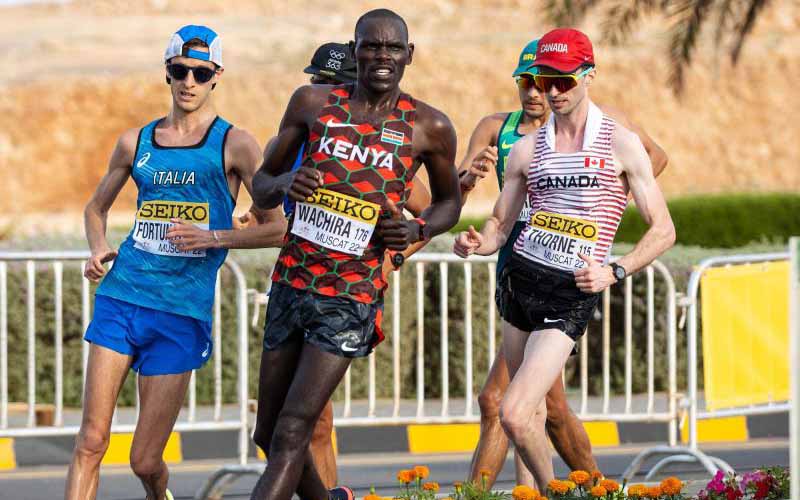Kenya's Simon Wachira at the World Athletics Race Walking Team Championships. [World Athletics]
×
The Standard e-Paper
Join Thousands Daily

Kenya is known as a distance running powerhouse. Now, that strength in endurance events is filtering through to the world of race walking.
Given that Kenya's athletes have won everything from 4x400m races to the marathon over the past six decades, it is surprising that there has not been more race walk success.